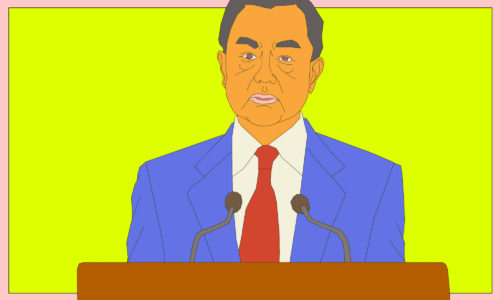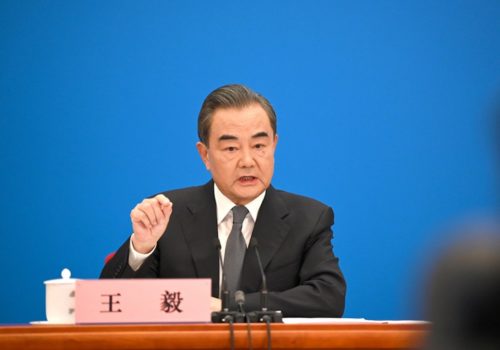The Quad gets together again
Part of the daily The China Project newsletter. Subscribe for free.

Will the Trump Administration’s Indo-Pacific dream last?
The Trump administration has resuscitated the term Indo-Pacific — a description that sounds less Chinese than Asia-Pacific. Another old name has been revived: The Quad, or Quadrilateral Security Dialogue, a meeting of officials from India, Japan, Australia, and the U.S., initiated in 2007, accompanied by joint military exercises. The Quad members have not met again as a foursome until this last weekend.
Then as now, China is the unspoken target:
- The Japanese Ministry of Foreign Affairs says that senior diplomats from Japan, Australia, India, and the U.S. met in Manila on November 12, and “discussed measures to ensure a free and open international order based on the rule of law in the Indo-Pacific.” All four countries released similar statements, although the Indian version did not explicitly refer to “freedom of navigation.”
- Indian PM Narendra Modi met Trump in Manila. The White House website says they discussed “their shared commitment to a free and open Indo-Pacific region,” and their resolve to partner to ensure that “the world’s great democracies should also have the world’s greatest militaries.”
- Trump also met with Australian PM Malcolm Turnbull and Japanese PM Shinzo Abe, and per the White House on November 13 in Manila, the three leaders “underscored the importance of working together to promote a free and open Indo-Pacific region.”
Some views on the Quad:
- From Beijing, a researcher at the Center for China and Globalization says, “China needs to as soon as possible deal with the Indo-Pacific alliance, as it is absolutely in conflict with Belt and Road,” according to Reuters.
- Chinese Foreign Ministry spokesperson Geng Shuang 耿爽 said rather diplomatically that “the relevant proposal should be open and inclusive and…avoid politicizing or excluding some relevant parties,” according to The Hindu.
- Writing in the nationalistic Chinese newspaper Global Times, Geoff Raby — former Australian ambassador and now CEO of a Beijing consulting firm — argues more strongly that joining the Quad “is not in Australia’s national interest”: “Recognizing that Australia is more dependent economically on China than any of the others, and by a big margin, it is curious why Australia would want to join a group that China sees as hostile to its interests.”
- In India, not everyone is convinced the Quad is a good idea: In The Wire, Manoj Joshi says that given the “intense and almost violent conflict of ideas within the U.S. about who and what America is all about…it would be hazardous to depend on the U.S. for an effective leadership of the coalition needed to balance China.”
- Former Australian national security adviser Michael Shearer tells a sympathetic history of the Quad, which argues that the “four countries should develop a robust annual exercise program to build interoperability, capability and ultimately deterrence in the region.”
Explicit rejection?
Much of the analysis of Trump’s trip to Asia concludes that he leaves behind a region that is uncertain of U.S. commitment to its allies and to global leadership while China rises inexorably under the steely-eyed leadership of Xi Jinping. But the story is more complex:
- Ely Ratner of the Council on Foreign Relations tweeted: “Way too simple to see U.S. isolation as only big story in Asia this week: Remember the two most important happenings in region — TPP11 and revival of Quad — both explicit rejections of China-led future.”
- TPP11 refers to a comprehensive trade pact that Trump withdrew from as one of his first presidential acts. The 11 other nations have renewed their commitment to it and renamed it the Comprehensive and Progressive Agreement for Trans-Pacific Partnership, or CPTPP.






